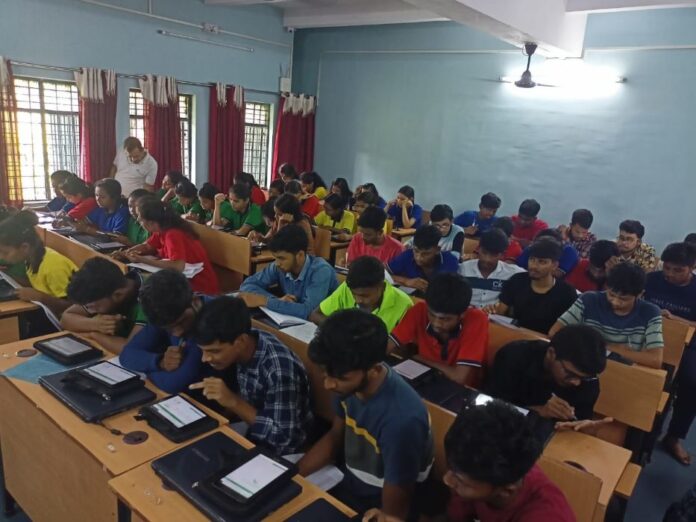
Launched to help deserving students to secure a place in the country’s premier higher education institutes through quality coaching, Tata Motors ENABLE programme, the Engineering and NEET (National Eligibility Entrance Test) Admission Bridge Accelerated Learning Engagement initiative has helped 3400 students enrol in India’s top engineering and medical schools and 40% of them are women.
Tata Motors has launched the Engineering and NEET (National Eligibility Entrance Test) Admission Bridge Accelerated Learning Engagement initiative—ENABLE in January 2021 in association with the Navodaya Vidyalaya Samiti (NVS), Avanti Fellows and Ex-Navodayan Foundation, striving to help deserving students. A crucial part of Vidyadhanam, one of its core pillars of focus in its Corporate Social Responsibility mandate, ENABLE is a digitally-enabled remote learning initiative that prepares talented class 11 and 12 students studying across 552 Jawahar Navodaya Vidyalayas (JNVs) in the country to take JEE and NEET competitive exams, providing access to resources and guidance that might otherwise not be easily available to them. In FY22, Tata Motors has helped 3400 students enroll in India’s top engineering and medical schools, 40% of which have been women.
ENABLE extends field-leading, free-of-cost coaching with targeted mentoring and continuous evaluation, supported by the benefits of a digital medium. With 20 times lesser cost per successful student as compared to any other premier coaching programme in the country, ENABLE has helped create a 10-fold increase in access to elite colleges in STEM. Overall, 35% of the students supported by this programme make it to prestigious engineering and medical institutes of the country.
Commenting on the success of the ENABLE initiative, Mr. Vinod Kulkarni, CSR Head, Tata Motors, said, “As a responsible corporate citizen committed towards enriching the youth of the country, Tata Motors has exerted continued emphasis on the need of making quality education accessible to all. Vidyadhanam, one of the core pillars of focus in our CSR programme, is entirely devoted towards taking tangible steps to strengthen education. ENABLE is focused on helping augment the efforts of secondary school students in their journey towards transitioning into higher education, and strives to provide promising youth from underserved communities all the help they need to make their engineering and medical aspirations come true. The initiative is fundamentally underscored by the benefits of digitization, and has helped us expand accessibility significantly, with remarkable results from enrolled students across India. In the coming years we hope to magnify the scope and impact of ENABLE, helping many more talented children fulfil their dreams.”
The programme was first executed in Puducherry in 2011, and later replicated in JNVs across Mangalore, Palghar, Kolhapur and Rajgir. It transitioned to a digital learning model in January 2021, massively expanding to the entire JNV system across 26 states and 8 union territories in the country.
Since inception over 45,000 students have been a part of ENABLE. In the academic year 2021-22, over 10,500 students appeared for JEE exams, of these 42% qualified JEE Mains and 11% cleared JEE Advanced. 70% of these qualifying JEE Advanced were ranked in top 10,000 and 38% of them made it into IITs, 40% being female, while the rest joined the top prestigious colleges. For NEET, 12% of the qualifying students made it to the top 10 medical institutes. Endeavouring to expand access to digital education, the programme has crucially supported aspiring students in home-learning during the pandemic through online classes, homework and weekly testing. Today, it continues to augment its teaching and learning efforts with digital tools and resources, broadcasting classes by expert teachers live through YouTube and Zoom. The infrastructural requirements to run online classes are taken care of by the schools and the Navodaya Vidyalaya Samiti (NVS), while the live classes are conducted by Avanti and ENF, along with weekly tests and reports. Going forward, the programme hopes to place 15000 students into high employability STEM courses like (Engineering, Medicine, Pharmacy, Nursing and Agriculture).








